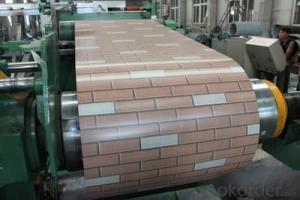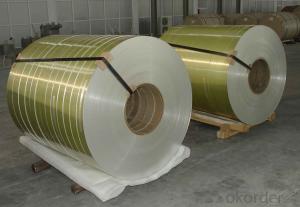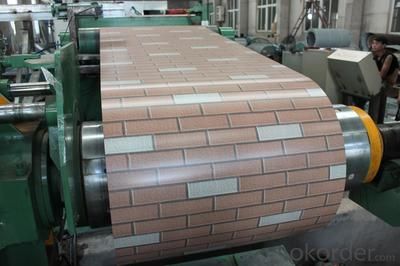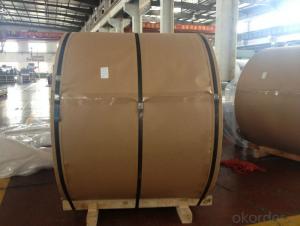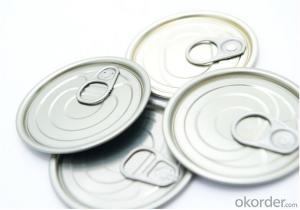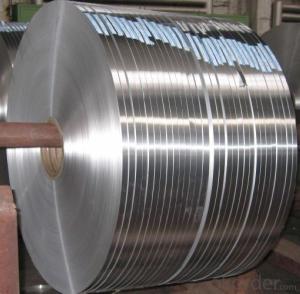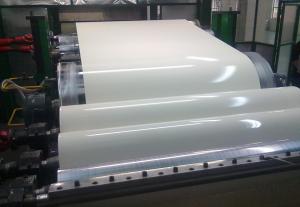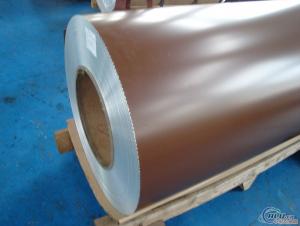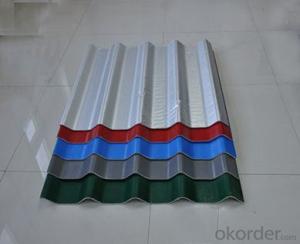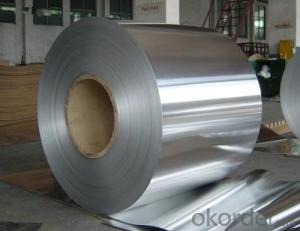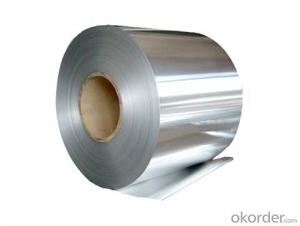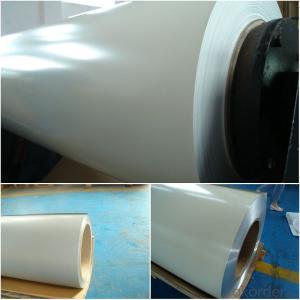Aluminum Sheet Coil for Solar Cell Frame - Color Coated Houston
- Loading Port:
- Shanghai
- Payment Terms:
- TT OR LC
- Min Order Qty:
- 5 m.t.
- Supply Capability:
- 50000 m.t./month
OKorder Service Pledge
OKorder Financial Service
You Might Also Like
Specification
Color Coated Aluminium Roll For Solar Cell Frame
Specifications
Grade | 1050,1060,1070, 1100, 1200, 2024,3003, 3004,3005, 3105, 5005,5052 5182,5754,8011 etc |
Thickness | 0.1~1.5mm |
Width | 100~2500mm |
Surface Treatment | PVDF and PE coated |
Temper | O-H112 |
Hardness | More than 2H |
Yield(≥MPa) | 160 |
Ultimate Strength(≥MPa) | 175 |
Elongation(≥%) | 6 |
Packing Material | Moisture-proof agent, steel tape bundle, wooden pallet, brown paper |
Method | Vertical(eye to sky) or horizontal(eye to wall) |
Standard Specification | 1000mm×C, 1200mm×C, etc |
Shipping | Container Loading or Bulk Pack |
Characteristics
1) Excellent weather-proof durability
2) Anti-ultraviolet
3) High erosion resistance
4) Stable color and gloss
5) Good mechanical processing performance
6) Abrasion resistance
7) Anti-impact
8) High flexibility
Application
1) Construction material further processing
2) Solar cell frame, solar battery frame
3) Glass curtain wall frame
4) Interior decoration
5) Elevator decoration
6) Signs, nameplate, bags making.
7) Automobile parts material
8) Office and Household appliances: HVAC equipments
9) The consumer electronics: mobile phones, digital cameras, MP3 .etc.
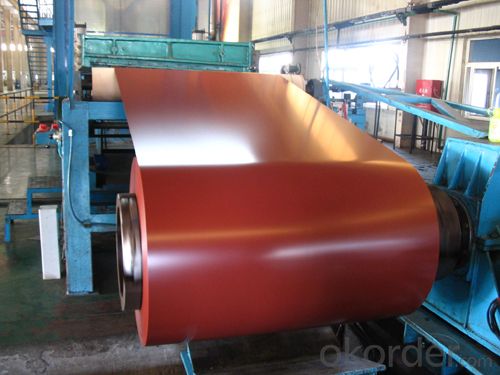
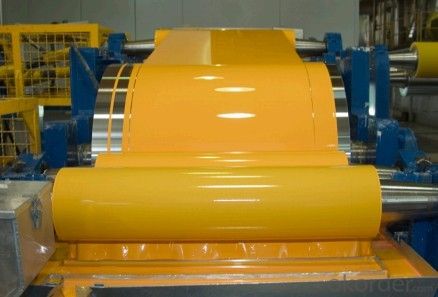
Coating varieties
Polyester Coatings (PE)
PE (polyester) coatings exhibit an excellent combination of hardness, flexibility, flow, appearance, and superior resistance to dirt retention in indoor and outdoor applications. These coatings are highly resistant to abrasion, metal marking, staining, and marring, and require minimal maintenance. Glazetech uses polyester paints which provide excellent colour and gloss retention properties.
Polyvinylidene Fluoride Coatings (PVDF)
PVDF (polyvinylidene fluoride) is a chemical resistant thick film barrier coating commonly used in architectural applications where both excellent appearance and substrate protection must be maintained over a long period of time. This coating is unaffected by most chemicals and solvents and has excellent wear and abrasion resistance. PVDF also has a high dielectric strength, excellent resistance to weathering and the ability to self extinguish.
FAQ
--Q: Do you provide free samples?
--A: Yes, free samples will be sent to you on freight at destination.
--Q: Can I get your latest products catalogue?
--A: Yes, it will be sent to you in no time.
--Q: What is the MOQ?
--A: 2 tons
--Q: What are your payment terms?
--A: We accept L/C, T/T.
--Q: What kinds of alloy can you supply?
--A: 1000 series: 1050, 1060, 1070, 1100, 1145, 1200
3000 series: 3003, 3004, 3105, 3104
5000 series: 5052, 5083, 5754, 5182
6000 series: 6061, 6063, 6062, 6063
8000 series: 8011, 8021
--Q: What’s the coating of top side?
--A: PVDF and PE coating
--Q: What kinds of temper can you supply?
--A: O-H112: O,H12,H14,H16,H18,H22,H24,H26,H,32,H34,H111,H112, T3, T4, T6
- Q: What are the different grades of aluminum used in coil manufacturing?
- There are several different grades of aluminum used in coil manufacturing, each with its own unique properties and applications. The most commonly used grades include 1100, 3003, 5052, and 6061. - Grade 1100 is a commercially pure aluminum with excellent corrosion resistance and good formability. It is often used in chemical equipment, heat exchangers, and food handling equipment. - Grade 3003 is a non-heat treatable alloy with good corrosion resistance and moderate strength. It is commonly used in cooking utensils, roofing, and general sheet metal work. - Grade 5052 is a high-strength alloy with good formability and excellent corrosion resistance. It is frequently used in marine applications, such as boat hulls and components, as well as in automotive parts and appliances. - Grade 6061 is a heat treatable alloy with excellent strength and good machinability. It is commonly used in structural applications, such as aircraft parts, bike frames, and automotive components. These grades of aluminum offer a range of properties and characteristics, allowing manufacturers to choose the most suitable grade for their specific requirements in coil manufacturing.
- Q: This question seeks to understand the environmental impact of discarded aluminum coils.
- <p>Discarded aluminum coils can have significant environmental impacts. They contribute to landfill waste and can potentially leach harmful substances into the soil and water if not properly managed. Aluminum production is energy-intensive, so recycling discarded coils reduces the demand for raw materials and conserves energy. However, if left in the environment, aluminum can also contribute to pollution and disrupt ecosystems. Proper recycling and disposal methods are crucial to mitigate these effects and promote sustainability.</p>
- Q: what is aircraft grade aluminum?
- This Site Might Help You. RE: what is aircraft grade aluminum? what is aircraft grade aluminum?
- Q: What is the weight of aluminum coils per square foot?
- The weight of aluminum coils per square foot can vary depending on the thickness of the coil. On average, aluminum coils weigh around 0.5 pounds per square foot. However, it is important to note that this is an approximate figure and may vary slightly depending on the specific alloy and manufacturing process used. It is always recommended to consult the manufacturer or supplier for the exact weight specifications of the aluminum coils you are working with.
- Q: Are aluminum coils suitable for cryogenic applications?
- Yes, aluminum coils are suitable for cryogenic applications. Aluminum has a number of properties that make it an excellent choice for use in low-temperature environments. Firstly, aluminum has a low melting point, which means it remains solid and maintains its structural integrity at cryogenic temperatures. This is crucial for applications where extreme cold temperatures are involved, such as in cryogenic storage or transportation. Additionally, aluminum has good thermal conductivity, which allows for efficient heat transfer. In cryogenic applications, it is important to manage and control heat flow to prevent temperature fluctuations or thermal stress. Aluminum coils can effectively transfer heat away from the system, ensuring stable and consistent temperatures. Furthermore, aluminum is lightweight and has a high strength-to-weight ratio. This makes it highly advantageous for cryogenic applications, where weight and space considerations are often critical. Aluminum coils can help reduce the overall weight of the system, making it more efficient and cost-effective. Lastly, aluminum is corrosion-resistant, which is essential in cryogenic environments where moisture or other corrosive substances may be present. Aluminum coils can withstand the harsh conditions and maintain their performance and durability over extended periods of time. Overall, due to its low melting point, good thermal conductivity, lightweight nature, and corrosion resistance, aluminum coils are indeed suitable for cryogenic applications. They offer numerous benefits and can effectively meet the requirements of such demanding environments.
- Q: What are aluminum coils used for?
- Aluminum coils are commonly used in various industries, such as construction, automotive, and HVAC, for their excellent thermal conductivity and corrosion resistance properties. They are primarily used for manufacturing heat exchangers, air conditioning systems, refrigeration units, and other heat transfer applications.
- Q: Are aluminum coils more cost-effective compared to other materials like copper?
- Aluminum coils are generally more cost-effective than other materials like copper for several reasons. To begin with, aluminum is a more abundant metal, making it cheaper to produce. Its abundance also results in more stable prices, reducing the likelihood of market fluctuations and further enhancing its cost-effectiveness. Furthermore, aluminum coils have a lower density compared to copper coils, resulting in lighter units. This lighter weight not only reduces costs for transportation and installation but also makes them easier to handle and maneuver during the manufacturing process. In addition, aluminum coils possess excellent thermal conductivity properties, enabling efficient heat transfer. This leads to more efficient cooling or heating systems, resulting in lower energy consumption and operating costs in the long run. Moreover, aluminum exhibits higher resistance to corrosion compared to copper, making it more durable and requiring less maintenance. The longer lifespan of aluminum coils reduces the need for replacements and repairs, further contributing to their cost-effectiveness. Lastly, aluminum coils are recyclable, and the recycling process requires significantly less energy than producing new aluminum. This aspect adds to the overall sustainability and cost-effectiveness of aluminum coils. In conclusion, considering their lower production costs, lighter weight, superior thermal conductivity, increased durability, and recyclability, aluminum coils are indeed a more cost-effective option compared to materials like copper.
- Q: How do aluminum coils contribute to the sound insulation of buildings?
- Aluminum coils contribute to the sound insulation of buildings by acting as a barrier or shield against sound transmission. The coils are often used in the construction of windows, doors, and other building components to dampen or block noise from entering or exiting a space. Their properties, such as their density and ability to reflect or absorb sound waves, help reduce the level of noise that can pass through the building envelope, resulting in improved sound insulation.
- Q: The user is asking if it's possible to create furniture using aluminum coils.
- <p>Yes, you can use aluminum coils to make your own furniture. Aluminum is a versatile material known for its strength, durability, and lightweight properties, making it suitable for furniture construction. You can bend and shape aluminum coils to create unique designs for chairs, tables, or shelving. However, it's essential to have the right tools and skills for cutting, bending, and joining the coils. Ensure you follow safety precautions when working with metal, and consider the structural integrity and weight distribution of your design to ensure the furniture's stability and longevity.</p>
- Q: Are there any specific installation requirements for aluminum coils?
- Aluminum coils have specific installation requirements that must be taken into account. When installing these coils, several factors need to be considered. First and foremost, it is crucial to provide adequate support and secure the coils properly during installation. Due to their weight, it is essential to prevent sagging or damage by using appropriate brackets or support structures. This ensures that the coils are firmly mounted. Secondly, the location and environment of the installation should be carefully assessed. Aluminum coils are commonly used in HVAC systems, so it is important to ensure that the installation area is free from any corrosive substances or chemicals that could harm the coils. Additionally, proper ventilation is necessary to prevent the accumulation of heat or moisture, as these factors can affect the coils' performance and lifespan. Moreover, it is imperative to adhere to the manufacturer's guidelines and recommendations for installation. These guidelines may include specific instructions regarding the type of fasteners or connectors to be used, the appropriate spacing between coils, and any other particular requirements for the specific aluminum coil being installed. By following these guidelines, the coils' optimal performance and longevity can be ensured. Lastly, it is highly advisable to enlist the services of a professional with experience in handling and installing aluminum coils. This will minimize the risk of any issues or damage resulting from incorrect installation. In conclusion, specific installation requirements for aluminum coils encompass proper support, consideration of the installation environment, adherence to manufacturer guidelines, and professional installation. By following these requirements, the optimal performance and longevity of aluminum coils can be achieved.
Send your message to us
Aluminum Sheet Coil for Solar Cell Frame - Color Coated Houston
- Loading Port:
- Shanghai
- Payment Terms:
- TT OR LC
- Min Order Qty:
- 5 m.t.
- Supply Capability:
- 50000 m.t./month
OKorder Service Pledge
OKorder Financial Service
Similar products
Hot products
Hot Searches
Related keywords
